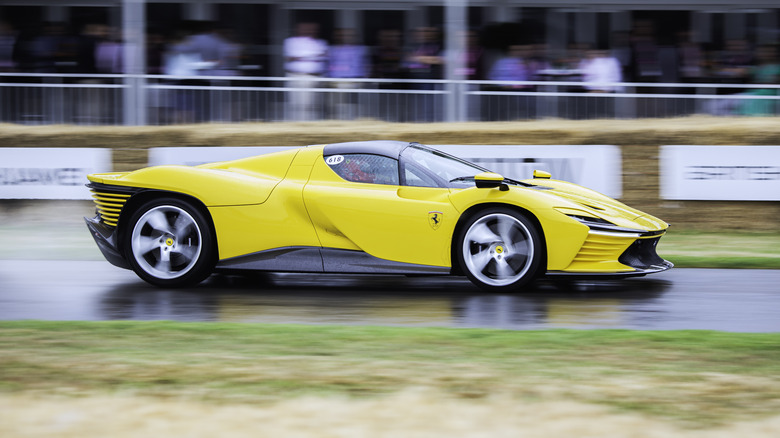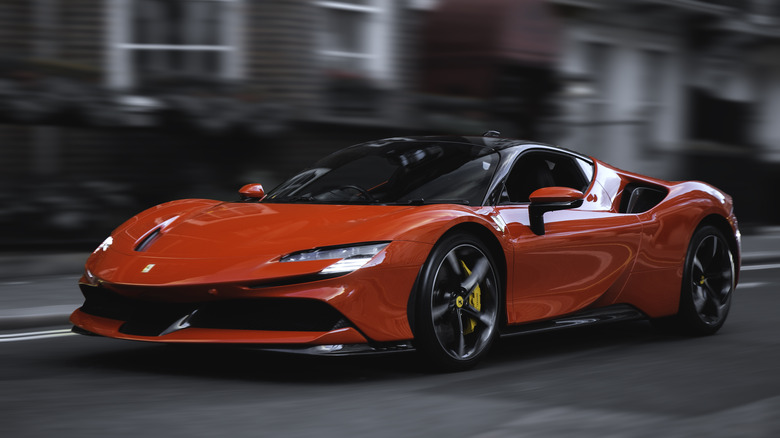Why Ferrari Isn't Giving Up The Combustion Engine
Global heat waves, flooding, and unpredictable weather changes have forced member countries of the European Union to approve a law that bans all gasoline or diesel-powered internal combustion cars earlier than usual. The historic law prescribes all new vehicles sold from 2035 have zero carbon emissions, and cars sold from 2030 should have 55% lower emissions.
However, Germany lobbied to exempt internal combustion cars powered by e-fuel, a synthetic petroleum alternative derived from captured CO2 emissions and other organic elements (like water or H20). German automaker Porsche kickstarted the e-fuel craze in 2022 and has collaborated with Siemens to mass-produce an Earth-friendly gasoline alternative.
Moreover, legendary Italian automaker Ferrari is riding the e-fuel bandwagon despite plans to debut its first-ever all-electric supercar by 2025. Ferrari aims for carbon neutrality by 2030 and will continue developing hybrids for its portfolio. And like Porsche, it won't stop making cars with internal combustion engines.
Gasoline is part of Ferrari's DNA
In a BBC interview, Ferrari CEO Benedetto Vigna said the good ol' internal combustion engine is "an essential part of the company's heritage," with all Ferrari vehicles having that soulful sound from its high-strung, gas-powered V8 and V12 engines. "It is the client who must choose if they want an ICE, a hybrid, or an electric car," said Vigna. "I don't want to be arrogant and impose a choice on our client."
Ferrari recently unveiled its newest road-legal hybrid supercars, the first under the automaker's racing-oriented XX program: the SF90 XX Stradale coupe and spider. Equipped with a twin-turbocharged gasoline-fed V8 engine, three electric motors, and a 7.9 kWh plug-in hybrid battery, the newest Ferrari XX models have 1,015 horsepower, can go from zero to 60 mph in 2.3 seconds, and travel for 15 miles in EV mode.
And despite rumors that the Daytona SP3 could be the last V12-powered Ferrari, the automaker is hedging its bets on synthetic e-fuel and hybrid technology to preserve its lineage amidst the electrified era.

